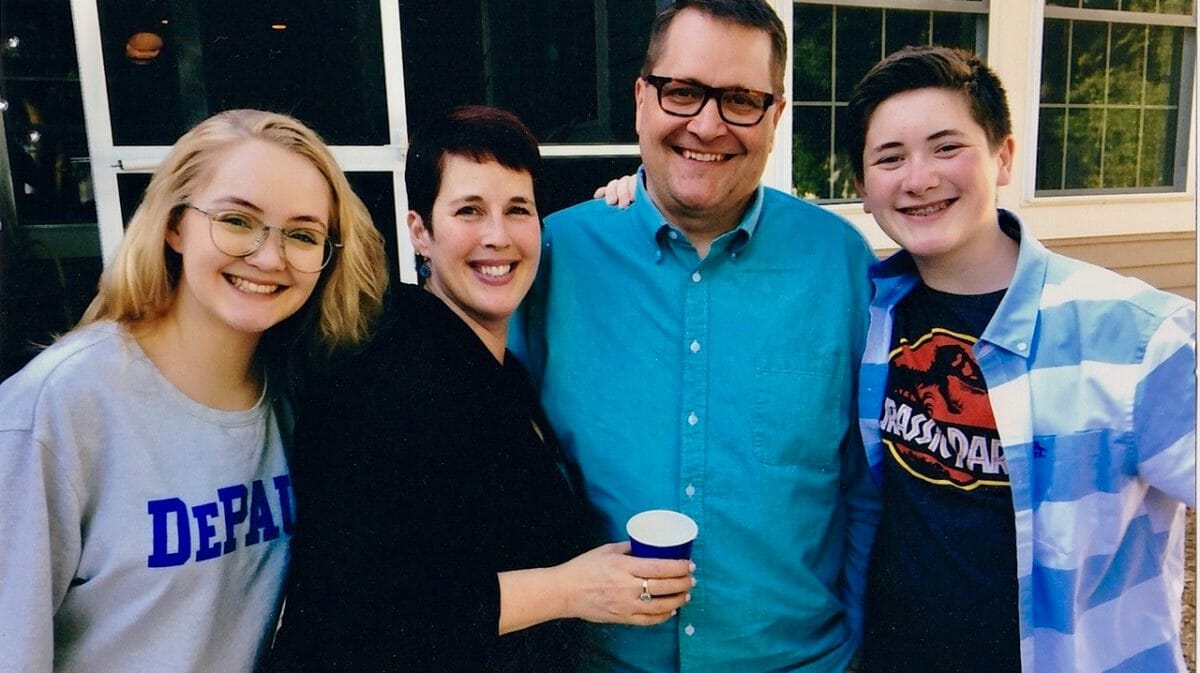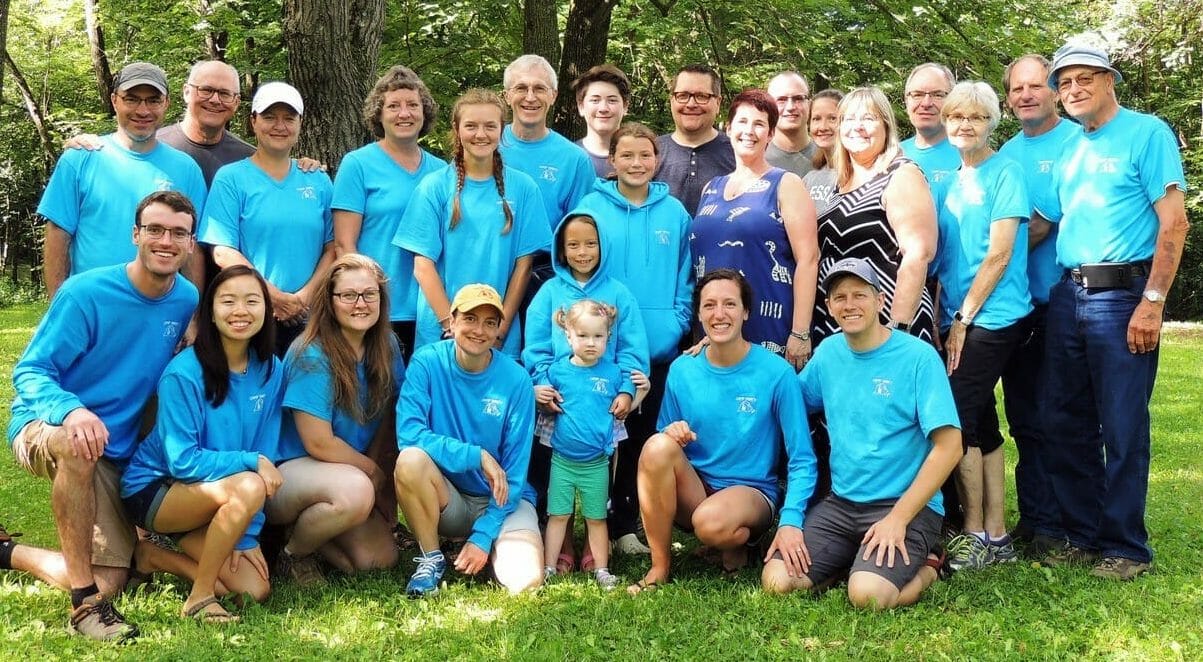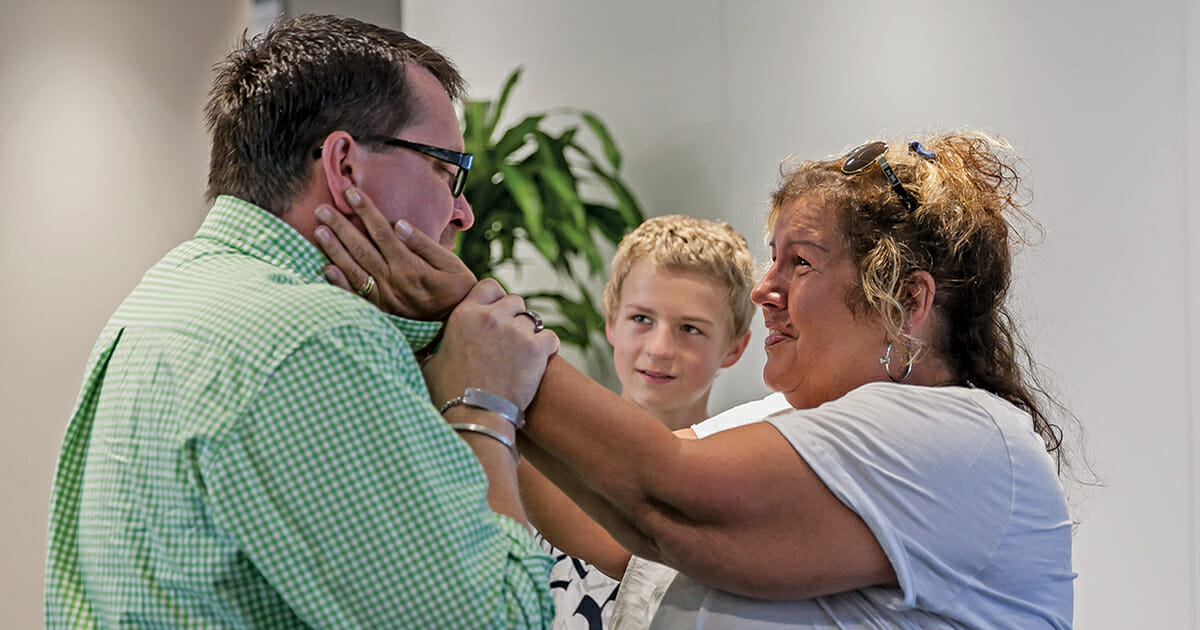After Receiving New Liver, Jay Focuses On Giving Back and Raising Awareness
A “yes” to organ donation creates ripples in amazing, life-changing ways.

Jay Beyer-Kropuenske began experiencing issues with his liver in 2011. Despite ongoing treatments and medication, Jay was hospitalized in an Intensive Care Unit (ICU) for 49 days with liver and kidney failure in May 2012.
Jay needed to re-learn to walk after he was released and struggled to lift anything. As a husband and father of two teenage children, Jay’s illness impacted his family too.
After 12 more hospitalizations, emergency room visits, and dialysis, his medical teams between the University of Minnesota and Abbott-Northwestern focused their efforts to keep Jay healthy enough to be a transplant candidate.
“There were so many doctors and nurses who cared for me and managed complex treatments and therapies, sometimes with competing interests, it amazes me that I survived.”
Previously considered “too sick for transplant” earlier in the year; he was re-evaluated at the University of Minnesota for consideration for liver and kidney transplant in the fall of 2012 and placed on the wait list.
In January 2013, Jay received that gift of life, and with it, a second chance at life when he became a liver and kidney recipient from one donor.
Making the Most of His Second Chance
Since his transplants, Jay has focused on giving back and raising awareness.

Jay now serves as an Ambassador for LifeSource, sharing his story with medical professionals, at new nurse orientation, emergency room staff meetings and with teens through health classes or driver’s education classes. These are very same classes his 15-year-old son is taking in preparation for his driver’s permit. When it comes time to apply for his license, checking the box on the application will have much greater meaning.
Jay even has had the opportunity to cross paths with some of the medical professionals who had a part in his story over the years.
While speaking to a group of nurses at Abbott Northwestern Hospital, he found himself looking at one of the nurses in the audience time and again. There was something about her face that was familiar. When he finished his presentation, this same woman approached him, and with tears in her eyes, she shared that she’d been an ICU nurse when he was hospitalized for the first time in 2012.
She’d known that he had made it out of the ICU but had always wondered if he’d received a transplant. Jay described feeling overwhelmed by her sincerity and care that he’d made it and was doing so well. She commented as she left, “Your donor was a real hero.”
Some of the volunteer work that Jay does allows him to provide words of encouragement for individuals in the liver support group. He talks about the role of LifeSource in the transplant process and how he’s benefited from being an Ambassador.
“What’s so critical – to make this whole thing work, is the commitment of LifeSource to maximize the ‘yes’ of organ donation – for the recipient and for the donor family. LifeSource provides such respect and compassion in their interactions. They take it to the next level in providing care for the families of donors, at the time of donation and for as long as they are interested. Not everyone wants the same type of support, but it is there for those who wish.”
In a moment of serendipity, Jay had the chance to meet and say “thank you” to the mother and young son of his donor at the conclusion of a Memorial Garden dedication ceremony at LifeSource. “I finally was able to express how grateful I was to be given these gifts…”

 Skip to main content
Skip to main content
